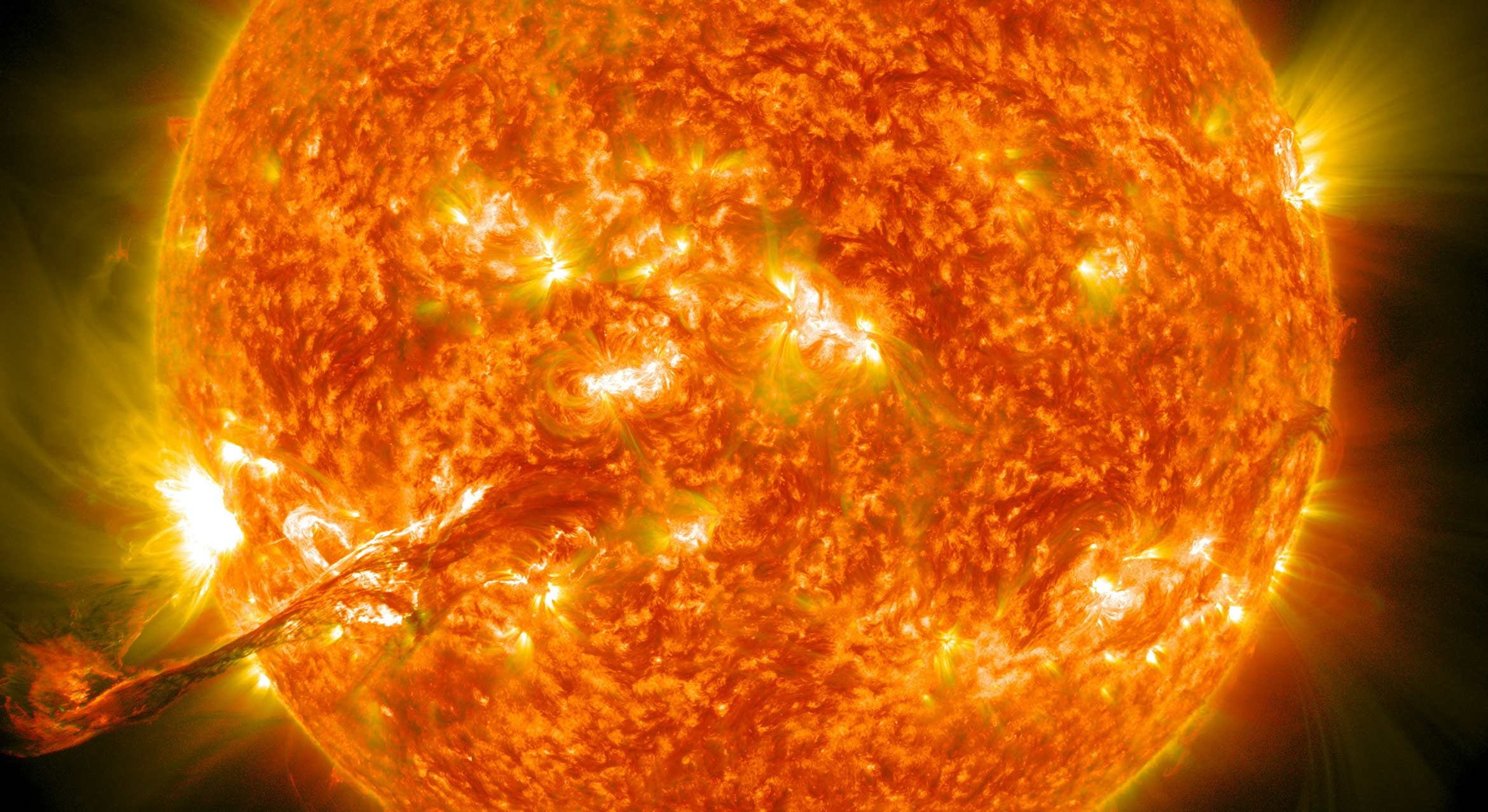
The Soft Touch
What do ketchup, silly putty, leaves, glue, cloth and our bodies have in common? They all fall under the category of soft matter, a class of materials that squish, flow and otherwise deform in response to mechanical stress or condition changes, much of it occurring around room temperature and generally at a timescale of seconds.
While a good deal of the material is familiar to us, the physics surrounding the emerging field of soft matter research is still a mystery. How, for instance, can the behavior of polymers be used to harvest more than just the fraction of energy we extract from light? How does life emerge from the collections of cells that comprise our growing, moving bodies?
This is the domain of physics studied by UC Santa Barbara professor Omar Saleh.
“My lab studies the physics of soft and biological matter,” said Saleh, a professor in the UCSB Department of Materials. “We are particularly inspired by the amazing characteristics and functions of living matter, which uses biomolecular building blocks such as DNA and proteins to create self-assembled machines that can generate forces, or create shapes, that enable all living organisms.”
In recognition of Saleh’s accomplishments in the field, which include creating the instruments and making the measurements needed to characterize the behaviors of these not-so-predictable systems, he has been selected to receive the prestigious Friedrich Wilhelm Bessel Research Award from the Alexander von Humboldt Foundation.
“I am really pleased to have received the Bessel Award from the Humboldt Foundation,” said Saleh, who was nominated for the honor by Tim Leidl, an experimental physicist at Ludwig Maximilian University of Munich (LMU). Leidl specializes in molecular self-assembly and nanoengineering. “The foundation encourages interactions between Germany’s leading research institutions and researchers from abroad, and I am honored to have been selected to take part in these interactions.”
Winners of the Bessel Award are recognized for their outstanding research record and invited to spend a period of up to one year collaborating on a long-term research project with specialist colleagues at a research institution in Germany. Saleh will receive €45,000 (about $50,700) to travel to Munich and carry out his research at LMU.
“Recently, we have been working to create a sort of artificial nucleus — an engineered, self-assembled DNA system that contains genes, and that generates structure changes or other outputs based on the way those genes are read out,” Saleh said. “During my stay in Germany, I hope to make significant advances in this project, particularly by interacting with leading researchers in the area of DNA self-assembly and synthetic biology. This is a great chance to interact with a world-class research institution, and gives me the opportunity to learn new scientific methods and concepts that will advance my personal research program.”
“The Bessel Award is a most deserved international recognition of the early career research achievements of Professor Saleh, who holds great promise to continue producing cutting-edge work that will have a seminal influence on his discipline beyond his current accomplishments in the physics of soft matter,” said UC Santa Barbara Chancellor Henry T. Yang. “Through this distinct honor, he will have the wonderful opportunity to collaborate with distinguished colleagues in Germany, further promoting international scientific cooperation. We take great pride that Omar will be representing UC Santa Barbara across borders, and we eagerly anticipate the rich impact of his current and future research efforts.”
Saleh, who received his doctorate in 2003 from Princeton University and joined the UCSB faculty in 2005, has been the recipient of several early-career honors. They include the Hertz Foundation Graduate Fellowship; a postdoctoral fellowship from the French Ministry of Research; the Young Speaker’s Award at the American Chemical Society’s Single Molecule Symposium; an NSF CAREER Award and the UC Junior Faculty Fellowship.
The Germany-based Humboldt Foundation grants about 20 Friedrich Wilhelm Bessel Research Awards annually to foreign scientists and scholars who are internationally renowned in their field, completed their doctorates fewer than 18 years ago and are expected to continue producing cutting-edge achievements that will have seminal influence on their discipline beyond their immediate field of work.



